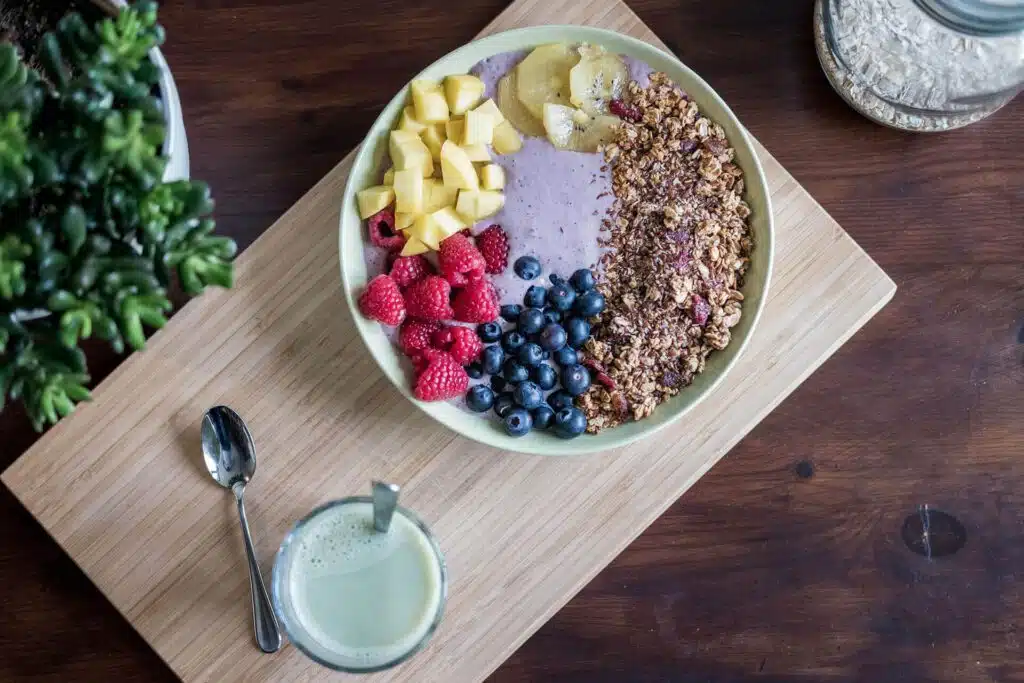Nutrition can be a complex topic to understand, apply, and communicate to your clients.
Luckily for us, there are three pillars that make a nutritional approach successful, regardless of the fitness goal. Once you’ve covered the fundamentals, all we need is to tweak the variables to reach success.
Let’s explore.
Pillar 1: Caloric Mindfulness
While many people enjoy overcomplicating their nutrition by following fancy diets, restricting their food at specific times, or using pre-written meal plans, any good eating plan starts with one thing:
Caloric mindfulness.
Every person has to be somewhat aware of how many calories they need for a specific goal and how much energy they consume daily. Knowing that turns nutrition from this obscure field into something simple and accessible.
For example, if a person wants to lose weight, they need to consume fewer calories than they burn (1). In contrast, those looking to gain weight should maintain a caloric surplus (2). Of course, other details go into the equation, but covering these fundamentals is what gets things moving (3, 4, 5).
One option to become more mindful is to track your calories for a while. Sure, it might seem obsessive, but doing so is a fantastic way to gain a deeper understanding of your nutritional needs and habits. Over time, you can transition into intuitive eating, but developing a base through tracking will make the process much easier.

Pillar 2: Balance
Being mindful of your calorie intake is essential, but not enough. You also need to ensure balance by consuming a wide range of foods and getting enough carbs, proteins, and fats. Doing so is essential because all three nutrients play crucial roles in your health, well-being, and fitness progress.
For example:
- Proteins are essential for muscle growth, repair, and general development (6)
- Fats are crucial for your hormones, brain health, and organs (7)
- Carbs are the primary fuel source for every cell inside your body (8)
Tracking your calories is beneficial because it makes it easier to estimate your proteins, carbs, and fats. But, even if you’re not interested in being so strict, consuming a wide range of foods will help you stay healthy and feel great on the road to your fitness goals.
- Here are a few suggestions:
- Fruits and veggies
- Oatmeal, quinoa, and rice
- Nuts and seeds
- Meats, fish, and legumes
- A range of dairy products
- Eggs
Pillar 3: Dietary Flexibility
The third pillar of nutritional success is dietary flexibility. Even the best diet in the world won’t do you much good if it restricts all of your favorite foods. You might follow it for a while, but you will eventually feel too restricted and give up.
Flexible dieting is a nutritional approach based on calorie and macronutrient tracking, coupled with a fair amount of flexibility. So long as you don’t go overboard with your calories and get enough of all macronutrients, you can enjoy some of your favorite treats daily.
Even if you don’t follow flexible dieting, learning to consume your favorite foods in moderation will play a significant role in your long-term success.
Conclusion
Being successful with your fitness nutrition is challenging. There are countless things to consider, misinformation to ignore, and doubts to overcome. But, so long as the three pillars are intact, your chances of successful fitness diet will be much higher.
Read More Our Article : Calculating Macros Without Scale







